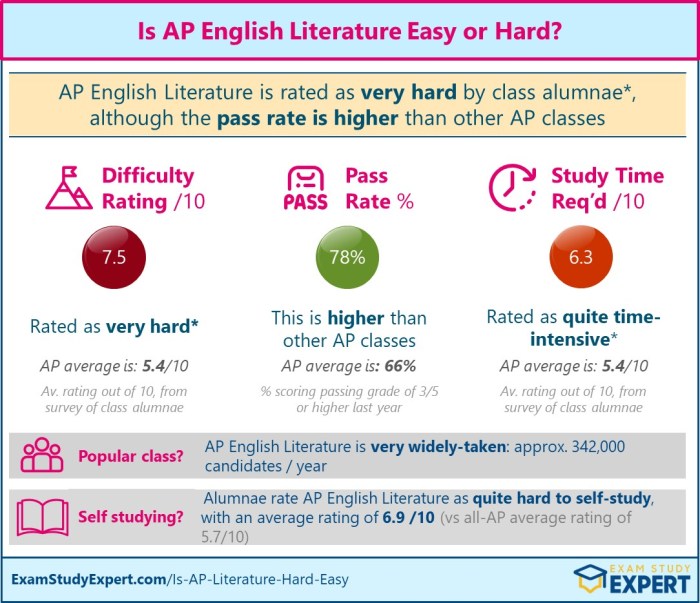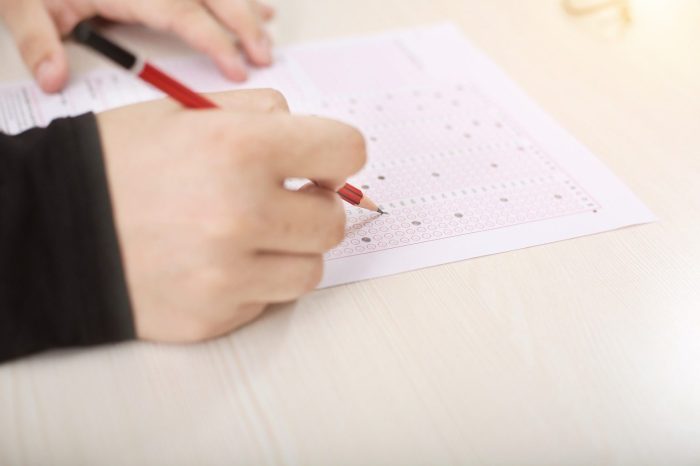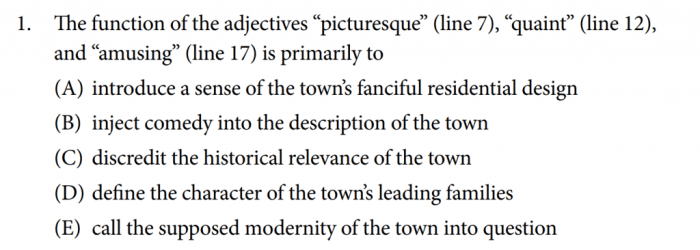AP Lit Multiple Choice PDF: Dive into the world of literature analysis with our comprehensive guide, empowering you to master the exam and unlock your potential as a literary scholar.
In this guide, we will delve into the intricacies of the AP Literature multiple-choice exam, providing you with the knowledge and strategies you need to excel.
AP Literature Multiple Choice Overview

The AP Literature multiple-choice exam is a challenging assessment that tests students’ critical reading, analytical writing, and literary analysis skills. Understanding the exam’s format, question types, and time constraints is crucial for success.
Tackling AP Literature multiple choice questions requires strategic preparation. To complement your studies, consider exploring envision math grade 6 pdf for comprehensive math practice. By incorporating diverse resources into your learning, you’ll enhance your overall academic skills, setting you up for success in AP Literature and beyond.
Exam Format, Ap lit multiple choice pdf
- Number of Questions:55
- Time Limit:60 minutes
- Question Types:
- Multiple-choice questions (50)
- Short-answer questions (5)
Question Types
The multiple-choice questions cover a wide range of literary topics, including:
- Literary devices and techniques
- Author’s purpose and style
- Character development and motivation
- Theme and symbolism
Time Management
Effective time management is essential on the AP Literature multiple-choice exam. Here are some strategies:
- Read the questions carefully:Don’t rush into answering without understanding what the question is asking.
- Pace yourself:Aim to answer about 1 question per minute.
- Skip difficult questions:If you’re stuck on a question, move on and come back to it later.
- Guess strategically:If you’re unsure of the answer, eliminate the choices you know are wrong and guess from the remaining options.
Essential Skills for Success

Excelling on the AP Literature multiple-choice exam hinges on possessing critical reading skills. These include the ability to dissect literary devices, unravel rhetorical strategies, and grasp authorial intent.
Understanding Literary Devices
Literary devices enhance a text’s depth and richness. Understanding metaphors, similes, imagery, and other devices helps illuminate the author’s message and create a vivid mental picture for the reader.
Analyzing Rhetorical Strategies
Rhetorical strategies are techniques writers use to persuade, inform, or entertain readers. Recognizing these strategies, such as ethos, pathos, and logos, enables students to comprehend the author’s purpose and how they craft their arguments.
Determining Authorial Intent
Unveiling authorial intent involves discerning the author’s purpose and perspective. This requires careful examination of the text, considering its tone, diction, and structure. By understanding the author’s intent, students can better grasp the text’s meaning.
Question Types and Strategies

The AP Literature multiple-choice section consists of 55 questions divided into three main types: poetry, prose fiction, and drama. Each question type requires a distinct approach to ensure success.
Poetry Questions
Poetry questions assess your understanding of poetic devices, themes, and the poet’s craft. To approach these questions effectively:
- Read the poem carefully and annotate it with poetic elements (e.g., imagery, metaphor, rhyme scheme).
- Identify the main theme or idea of the poem.
- Analyze how the poet uses language and structure to convey meaning.
Prose Fiction Questions
Prose fiction questions test your comprehension of character development, plot structure, and literary devices. To tackle these questions:
- Read the passage attentively and identify key events and characters.
- Analyze the author’s use of literary devices (e.g., foreshadowing, symbolism, point of view).
- Consider the broader context of the work and its literary significance.
Drama Questions
Drama questions assess your understanding of plot, characterization, and dramatic elements. To approach these questions:
- Read the play or excerpt carefully, paying attention to dialogue and stage directions.
- Analyze the motivations and relationships of the characters.
- Consider the play’s structure, setting, and symbolism.
| Question Type | Example | Strategy |
|---|---|---|
| Poetry | Which of the following is the central metaphor in the poem? | Annotate the poem and identify the metaphor that most strongly contributes to the theme. |
| Prose Fiction | How does the author use foreshadowing to build suspense in the passage? | Identify instances of foreshadowing and analyze how they create a sense of anticipation. |
| Drama | What is the protagonist’s primary conflict? | Analyze the character’s motivations, actions, and relationships to determine their central conflict. |
Sample Questions and Analysis

Let’s dive into a selection of multiple-choice questions from previous AP Literature exams to solidify your understanding of the concepts discussed. Each question will be analyzed in detail, explaining the correct answer choices and the reasoning behind them. The explanations will be supported by evidence from the passages to provide a comprehensive understanding of the analysis.
Question 1
Read the following passage:
“The old man sat on the porch, his eyes fixed on the distant horizon. He had been sitting there for hours, unmoving, lost in thought. The sun was setting, casting a warm glow over the scene. The old man’s face was etched with lines of age and experience, and his eyes held a distant look, as if he were gazing into the past.”
Which of the following is the most likely interpretation of the old man’s demeanor?
- He is content and at peace.
- He is deeply troubled by something.
- He is reminiscing about the past.
- He is waiting for someone.
Correct Answer:C
Explanation:The passage describes the old man as “lost in thought” and “gazing into the past.” These details suggest that he is reminiscing about the past rather than being content, troubled, or waiting for someone.
Test-Taking Tips and Preparation: Ap Lit Multiple Choice Pdf
Preparing for the AP Literature multiple-choice exam requires a strategic approach that involves effective study habits, stress management, and familiarity with the exam format.
Effective Study Habits
- Active Reading:Engage with the assigned literary works by actively reading, annotating, and summarizing key themes, characters, and literary devices.
- Note-Taking:Create comprehensive notes that capture important concepts, quotes, and analysis from the readings. Organize these notes into categories or topics for easy retrieval.
- Practice Tests:Take timed practice tests under exam-like conditions to familiarize yourself with the question types, time constraints, and pacing.
Managing Stress and Anxiety
- Preparation:Thorough preparation through effective study habits reduces stress and boosts confidence during the exam.
- Time Management:Allocate time wisely during the exam, focusing on questions you can answer confidently first.
- Relaxation Techniques:Practice relaxation techniques such as deep breathing or meditation before and during the exam to calm nerves and improve focus.
FAQ
What is the format of the AP Literature multiple-choice exam?
The exam consists of 55 multiple-choice questions divided into two sections: Poetry and Prose. Each section has its own time limit.
What types of questions can I expect on the exam?
Questions cover a range of literary concepts, including literary devices, authorial intent, and analysis of passages.
How can I effectively manage my time during the exam?
Practice time management techniques, allocate time wisely between sections, and prioritize answering questions you are confident in first.